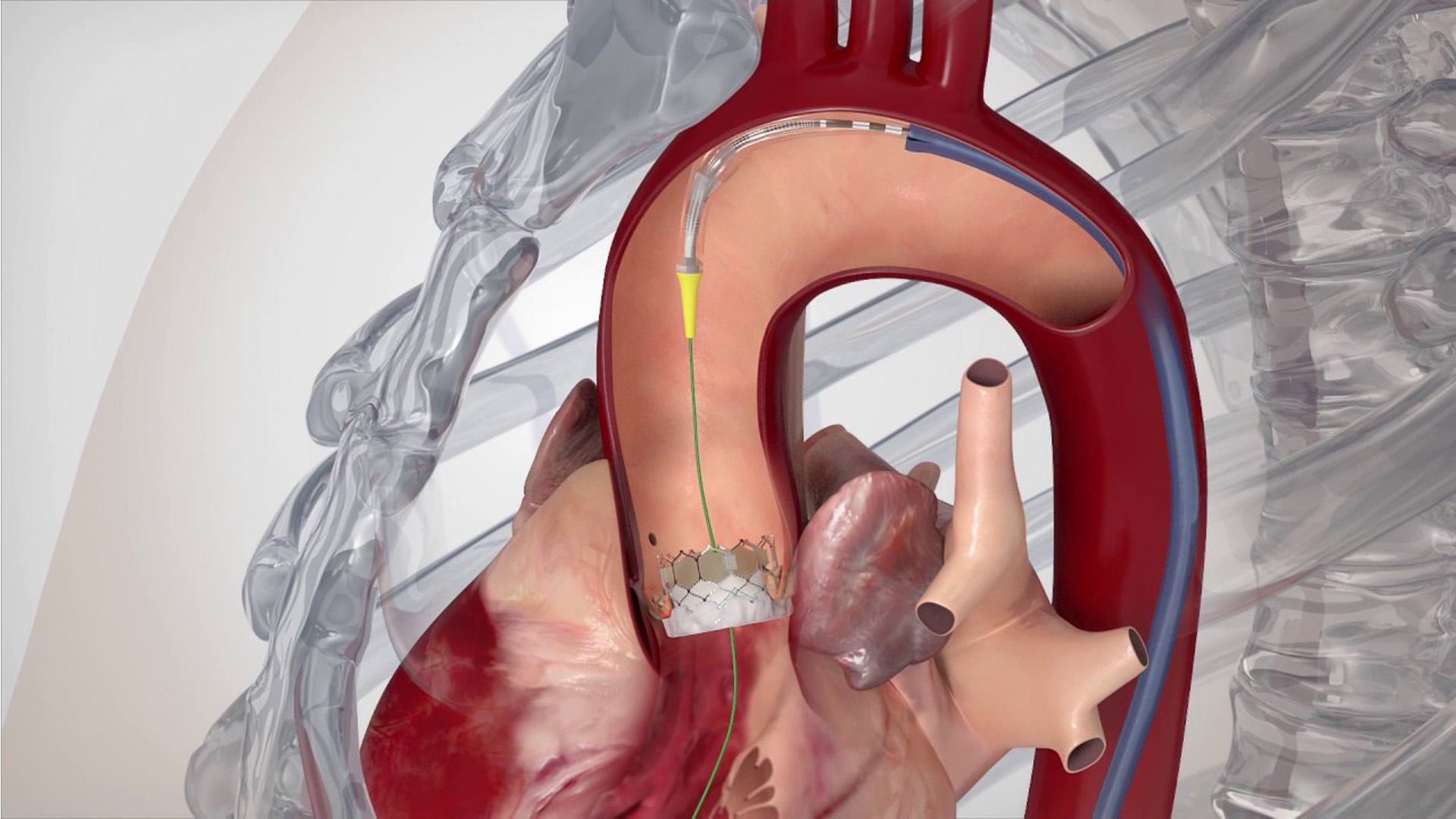03 Feb 2026
Rhinoplasty Revision Surgery in Mohali: Cost When Your First Nose Job Fails


Dr. Harinder K Bali
22 May 2025
Call +91 80788 80788 to request an appointment.
Aortic valve replacement is a critical procedure aimed at treating aortic valve diseases, which can significantly impact heart function. The aortic valve regulates blood flow from the heart into the aorta, the main artery supplying blood to the body. When this valve becomes narrowed or leaks, patients may experience symptoms like fatigue, shortness of breath, and chest pain. Traditional surgical techniques require open-heart surgery, which can involve extended recovery times and hospital stays.
Recently, a breakthrough in cardiac care known as Transcatheter Aortic Valve Implantation (TAVI) or Transcatheter Aortic Valve Replacement (TAVR) has emerged. TAVI is a minimally invasive alternative to traditional surgery and is particularly advantageous for elderly patients and those with high surgical risks. This blog explores the critical aspects of TAVI, particularly in Punjab, and discusses its benefits, advancements, and the expertise available at Livasa Hospitals.
TAVI, or Transcatheter Aortic Valve Implantation, is a non-surgical procedure designed to replace a malfunctioning aortic valve without open-heart surgery. Instead of making a large incision in the chest, the TAVI procedure involves inserting a thin tube, or catheter, through a small incision in the groin or chest, guiding it to the heart, and implanting a new valve directly in place of the damaged valve.
The TAVI procedure in Punjab has gained recognition for its effectiveness and safety, especially for patients who are not ideal candidates for open surgery due to age, frailty, or other health conditions. During this procedure, the new valve is delivered via the catheter and expands within the old valve, allowing one-way blood flow while maintaining the heart’s function.
TAVI has several advantages over traditional aortic valve replacement surgery. These include:
TAVI can fundamentally enhance the quality of life for patients suffering from severe aortic stenosis or regurgitation, allowing them to resume standard activities without the debilitating symptoms caused by aortic valve diseases.
The TAVI procedure is primarily recommended for:
A comprehensive evaluation by a team of heart specialists in Punjab is essential to determine the suitability of TAVI for each patient. This evaluation may include imaging tests, heart function assessments, and a thorough review of the patient’s medical history.
Understanding the steps involved in the TAVI procedure is critical for patients and their families. Here’s what to expect during this innovative treatment at Livasa Hospitals:
The entire TAVI procedure is generally completed within one to two hours, and most patients can expect to return home within a few days, depending on their individual recovery progress.
The success rates of TAVI are impressive, establishing it as a reliable option for many patients with severe aortic valve diseases. Recent statistics show:
These results are crucial for patients considering their options for heart valve treatment. In Punjab, the availability of skilled practitioners in cardiac surgery, particularly at Livasa Hospitals, provides access to this advanced treatment.
Like all medical procedures, TAVI carries certain risks. Understanding potential complications can help patients make informed decisions. Common risks associated with TAVI include:
To mitigate these risks, patients at Livasa Hospitals benefit from a comprehensive care approach that includes pre-procedure assessment, skillful execution of the procedure by leading cardiac specialists, and follow-up care to monitor recovery.
One crucial aspect to consider before undergoing the TAVI procedure is the associated costs. The heart valve replacement cost in Punjab varies depending on multiple factors, such as hospital facilities, surgeon’s fees, and individual recovery requirements. However, the costs for a TAVI procedure generally include:
| Cost Component | Estimated Cost (INR) |
|---|---|
| Hospitalization Charges | 1,50,000 - 3,00,000 |
| Surgeon’s Fees | 1,00,000 - 2,00,000 |
| Diagnostic Tests | 20,000 - 50,000 |
| Medications | 10,000 - 25,000 |
Overall, the costs involved in the minimally invasive aortic valve replacement Punjab can be significantly less when considering the reduced recovery time and potential for fewer post-procedural complications. For those interested, Livasa Hospitals offers financial counselling to assist patients in making informed decisions regarding their healthcare expenses.
Livasa Hospitals is a leader in cardiac care in Punjab, providing state-of-the-art heart care through a dedicated team of experienced cardiac surgeons and specialists. Our facilities are equipped with the latest technology to perform TAVI and other advanced heart valve treatments effectively. Here are some reasons to consider Livasa Hospitals for your TAVI procedure:
If you or a loved one is considering an aortic valve replacement procedure in Punjab, Livasa Hospitals stands ready to provide you with the highest standard of care.
TAVI is revolutionizing the treatment of aortic valve diseases, offering a less invasive alternative that promotes quicker recovery and better outcomes for patients. As one of the foremost cardiac care institutions in Punjab, Livasa Hospitals is committed to providing comprehensive, cutting-edge heart health solutions tailored to each patient's individual needs.
If you or a family member is suffering from aortic valve issues, we encourage you to consult with our heart health specialists in Punjab to discuss the suitability of TAVI for your circumstances. Early detection and advanced treatment can lead to transformative improvements in your overall health and quality of life.
Don't wait for your symptoms to worsen. Book your TAVI consultation at Livasa Hospitals today, or talk to our specialists for more information.
Rhinoplasty Revision Surgery in Mohali: Cost When Your First Nose Job Fails
Plastic Surgery After Massive Weight Loss: Body Contouring Packages in Mohali
ENT + Cosmetic in Mohali: Septoplasty for Breathing with Cosmetic Rhinoplasty Offers
Livasa Healthcare Group Corporate Office,Phase-8, Industrial Area, Sector 73, Sahibzada Ajit Singh Nagar, Punjab 160071
| Mohali | +91-99888 23456 |
| Amritsar | +91-99887 49494 |
| Hoshiarpur | +91-99883 35353 |
| Nawanshahr | +91-75081 82337 |
| Khanna | +91-98888 05394 |